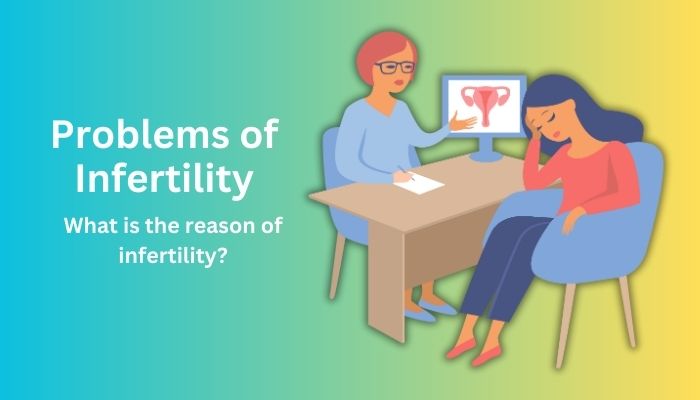What is Infertility?
Infertility is the inability to conceive a child after a year or more of regular, unprotected sex. It can affect both men and women and can be caused by a variety of factors, including medical conditions, lifestyle choices, and environmental influences.
Infertility is a common issue that affects many couples around the world. It can be an emotionally and physically challenging journey for those who experience it. This blog post aims to shed light on the various problems associated with infertility, making the topic easy to understand and relatable.
Common Causes of Infertility
Causes of Infertility In Women
- Ovulation Disorders: Problems with ovulation are a common cause of infertility in women. Conditions like polycystic ovary syndrome (PCOS) and hormonal imbalances can prevent the ovaries from releasing eggs regularly.
- Fallopian Tube Damage: Blocked or damaged fallopian tubes can prevent the sperm from reaching the egg. This can result from pelvic inflammatory disease, previous surgeries, or endometriosis.
- Uterine or Cervical Issues: Abnormalities in the uterus or cervix can interfere with implantation or increase the risk of miscarriage. These issues can be due to fibroids, polyps, or congenital abnormalities.
Causes of Infertility In Men
- Sperm Production Issues: Low sperm count, poor sperm motility, or abnormal sperm shape can make it difficult for sperm to fertilize an egg.
- Testicular Problems: Conditions like varicocele (enlarged veins in the testes) can affect sperm quality and production.
- Hormonal Imbalances: Hormones play a crucial role in sperm production. Imbalances in hormones such as testosterone can lead to infertility.
Emotional and Psychological Impact on Infertility
The journey of infertility can be emotionally taxing for couples. Some common emotional and psychological challenges include:
- Stress and Anxiety: The uncertainty and repeated disappointments associated with infertility can cause significant stress and anxiety.
- Depression: Many individuals facing infertility experience feelings of sadness, hopelessness, and depression.
- Relationship Strain: The emotional toll of infertility can put a strain on relationships, leading to conflicts and decreased intimacy.
- Social Pressure: Couples often feel societal pressure to have children, which can add to the emotional burden.
Physical and Financial Challenges
Infertility treatments can be physically demanding and financially draining. Some of the challenges include:
- Medical Procedures: Treatments like in vitro fertilization (IVF) involve invasive procedures and frequent medical appointments.
- Side Effects: Fertility medications can cause side effects such as mood swings, weight gain, and hot flashes.
- High Costs: Fertility treatments can be expensive, and many insurance plans do not cover the full cost. This can lead to financial strain for couples.
Coping Strategies
While dealing with infertility can be challenging, there are several strategies that can help couples cope with the difficulties:
- Seek Support: Joining support groups or talking to a counselor can provide emotional support and help manage stress.
- Educate Yourself: Understanding the causes and treatments of infertility can empower couples to make informed decisions.
- Communicate: Open and honest communication with your partner can strengthen your relationship and help you navigate the challenges together.
- Practice Self-Care: Taking care of your physical and mental health is crucial. Engage in activities that reduce stress and promote well-being.
Infertility is a complex issue that affects many aspects of life. Understanding the various problems associated with infertility can help those affected feel less isolate. Remember, you are not alone in this journey, and there are resources and support available to help you navigate through it.





